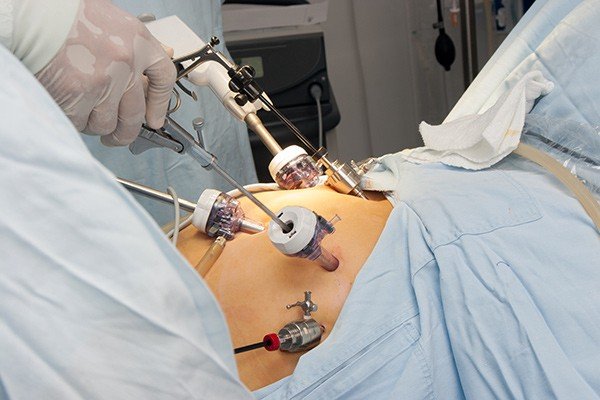Are you over weight? Are you suffering from obesity? Are you planning to go for a weight loss surgery? Then you must know the pros and cons of a weight loss surgery. You have to know whether a weight loss surgery causes any side effects to you. Well, Let me discuss this with you in detail. Weight loss surgery is also called bariatric surgery. Look, every surgery has some r4isk factors. Likewise, if you want to opt for bariatric weight loss surgery, it will also accompany some side effects. These are:
- Nausea or Diarrhea or dumping syndrome
- low blood sugar level
- Malnutrition or undernourishment caused due to the smaller size of the stomach and
- Vomiting and
- Ulcers
- Bowel obstruction
- Hernias
These above mentioned problems are the long-term consequences of bariatric weight loss surgery. But there are also other short-term side effects of this surgery. These are:
- Acid reflux,
- Anesthesia-related risks
- Chronic nausea and vomiting
- Dilation of esophagus
- Inability to eat certain foods
- Risk of infection
- Obstruction of stomach
- Weight gain or failure to lose weight
But for your easy comprehension, I will categorise all these problems into seven factors that you should always keep in mind before going for a bariatric surgery. These seven factors are as follow.
-
Chronically Dumping Syndrome
Before understanding what is chronically dumping syndrome and how it happens, you have to know what is actually operated in bariatric surgery. It is also called metabolic surgery because this surgery directly reflects on the patient’s weight and metabolism. People with diabetes, high blood pressure and high cholesterol are generally interested to do this surgery and they really get some benefits from it. But here, your stomach is reduced in size by operation. But it is not possible to control your food intaking habit overnight with the surgery. So, in this condition, you can feel too much hungry all the time, and you will suffer from the frequent emptying of your stomach if you go for a weight loss surgery or bariatric surgery.
Feeling too much hungry can lead you towards indigestion because of food intaking into the small intestine very often. Nausea, vomiting, dizziness, fatigue symptoms are the direct consequences of this syndrome.
-
Low level of blood sugar
Hypoglycemia is a disease which is another name for low blood sugar level. After the bariatric weight loss surgery, patients suffer from excessively low level of blood sugar.
In the field of bariatric surgery, the size of your stomach is decreased by gastric bypass surgery, which is also called laparoscopic surgery. After two or three years of this laparoscopic surgery, you can suffer from loss of consciousness and it that may lead you to many accidents as you will be out of your senses sometimes.
-
Malnutrition after surgery
You can fall in a life-threatening condition after the weight loss or bariatric surgery as you will be a victim of malnutrition after the bariatric surgery. The problem of malnutrition is not felt just with the surgery. But after two or three years you can notice it in your body. As I mentioned earlier, i8n this bariatric surgery, practically the size of your stomach is reduced, so that the amount of your food intaking comes to a minimum percentage. As a result, you can easily suffer from malnutrition that can lead to many problems and it mainly affects your brainpower and eyesight.
-
Marginal Ulcer
After the bariatric surgery, you can also be a victim of marginal ulcer, which you can say is irresistible. It can cause serious complications to your liver and small intestine and the large intestine also. Nausea, vomiting, stomach hazards, abdominal pain, Hematemesis and perforation are some of the results you will have to face if you suffer from a marginal ulcer.
-
Bowel Obstructions
Bariatric Surgery or weight-loss surgery causes bowel obstructions. It also causes abdominal distension, gassiness, vomiting, etc.
-
Internal Hernias
Weight loss surgeries sometimes come with internal hernias. These are basically some obstructions or holes in the lining of the stomach, which are more common with open surgery than laparoscopy.
-
Gallstones
Gallstones are the cause of weight gaining or losing weight. If you do bariatric surgery, you may develop gallstones in your kidney after two or three years.
Final thoughts
However, before sitting for any operation, one should know well about the advantages and disadvantages of it. For this, you can go through the articles like this. These will help you to choose wisely. And we will be always here to help you. Because your life is no joke to us. So take a decision once you are satisfied with the information. sprunki horror Endless Fun Awaits!



